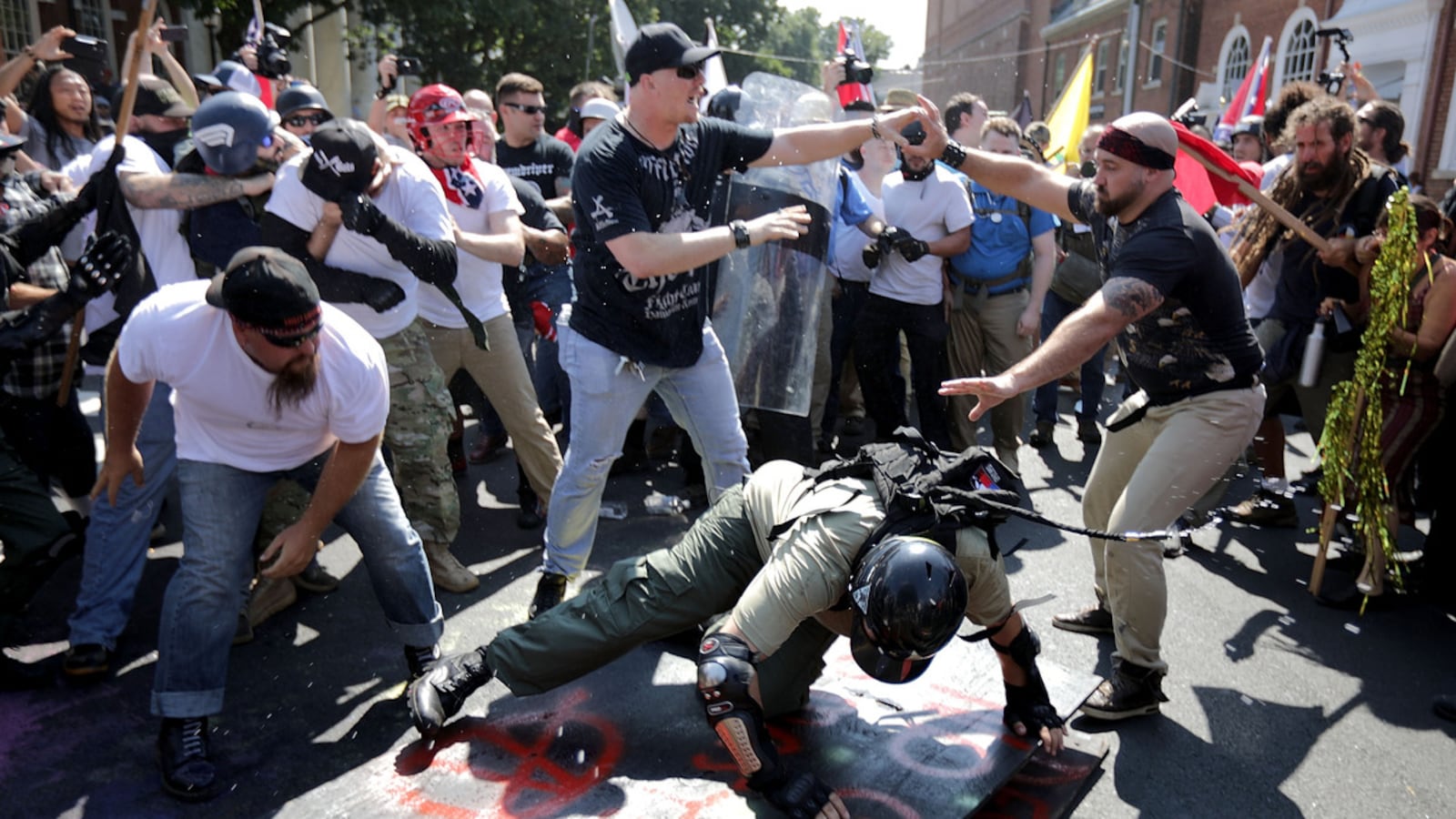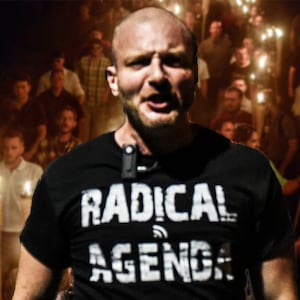A Charlottesville, Virginia, jury on Tuesday ruled that white supremacists engaged in a conspiracy and were responsible for attacks at the Unite the Right rally in 2017.
The decision was a costly one for prominent racists like Richard Spencer, Christopher Cantwell, and Jason Kessler, forcing them to pay millions to their victims. The jury did not reach a decision on two of the case’s largest claims, which argued that the defendants participated in a conspiracy to commit racial violence that violated federal law.
The ruling followed 22 days of tense testimony and deliberation over Unite the Right, the deadly 2017 white supremacist rally in Charlottesville. In their lawsuit Sines v. Kessler, nine victims of Unite the Right filed suit against the rally’s key participants, accusing them of deliberately creating the conditions for a violent, racist event. The defendants, a coalition of 24 far-right groups and individuals, denied those claims in court. Although defendants frequently embraced racist rhetoric on the witness stand, they argued that they had not actively conspired to cause violence at the two-day event, at which white supremacists attacked counter-demonstrators with fists, tiki-torches, and a car.
Integrity First For America, the nonprofit backing the plaintiffs’ lawsuit, called the ruling a victory.
“Our plaintiffs have won their lawsuit against the Nazis, white supremacists, & hate groups behind the deadly Unite the Right violence in Charlottesville,” the organization tweeted on Tuesday. “This is a HISTORIC legal victory against the forces of violent hate that threaten our communities & our democracy.”
The jury (11 people instead of 12, after one left mid-trial due to COVID-19 exposure) was asked to rule on six claims against the defendants. The sprawling nature of the case meant that some defendants could be found guilty of certain claims, while others were cleared.
The jury announced on Tuesday afternoon that it could not reach a unanimous verdict on two of the case’s major claims, which argued that white supremacists engaged in a criminal conspiracy to commit racial violence. However, the jury agreed that all defendants engaged in such a conspiracy in a way that violated Virginia civil law. The jury also ruled that defendants had engaged in violence and harassment against plaintiffs.
That ruling cuts against defendants’ longtime insistence that violence at Unite the Right was spontaneous and unplanned, and that the event’s organizers should not be held responsible.
The Virginia conspiracy finding comes with steep penalties. The jury slapped the case’s individual defendants with $500,000 each in punitive damages and the groups with $1 million each in punitive damages. Defendant James Fields Jr., who is currently serving life in prison for murdering a counter-demonstrator with his car at Unite the Right, was hit with an additional $6 million in punitive damages.
The case’s conclusion will mean compensation for plaintiffs, who argued that the rally had left them grappling with trauma and huge medical bills. The jury awarded the nine plaintiffs more than $25 million.
Seven defendants had previously lost judgments by default, largely due to a lack of cooperation. Among them are Andrew Anglin and Robert “Azzmador” Ray, a pair of neo-Nazis who have gone into hiding rather than face their day in court. Other default judgments were awarded to white supremacist Augustus Sol Invictus, as well as Anglin’s company Moonbase Holdings, two Ku Klux Klan branches, the Fraternal Order of the Alt-Knights (a wing of the paramilitary group the Proud Boys), and the Nationalist Front (a now-dissolved conglomerate of several other white supremacist groups).
The first two claims accused defendants of violating federal law to participate in a conspiracy to commit racial violence (the third claim made similar arguments under Virginia civil law). The final three claims related to defendants’ alleged attacks on the plaintiffs at Unite the Right.
The climactic court case, four years in the making, sent shockwaves through the far right long before it ever went to trial.
The Sines v. Kessler discovery process forced some defendants to turn over their communications (others resisted, some claiming their phones had fallen in toilets) to the court. Some of those messages shed light on white supremacist networks, revealing their funding structures and their communications before and after Unite the Right.
Though Sines v. Kessler was a civil case, it led to criminal charges for multiple defendants who refused to comply with court orders. Those included Ray, who is currently on the run, and white supremacist Elliott Kline, who spent a short time in jail for refusing to produce court-ordered documents.
The case also led to financial woes for the defendants. Prior to trial, the group Vanguard America was ordered to pay more than $16,000 for withholding documents. Kline and white supremacist leader Matthew Heimbach were also ordered to pay more than $12,000 in sanctions.
Legal pressure after Unite the Right appears to have driven rifts in the already fractious far right. Vanguard America dissolved shortly after the rally, likely due to the fact that James Fields Jr., the neo-Nazi who murdered a counter-demonstrator with a car at Unite the Right, had marched with the group. (A Vanguard America splinter group, Patriot Front, is still active.) Heimbach’s group, the Traditionalist Worker Party, also dissolved (in this case due to a domestic violence incident between members), while the group Identity Evropa, another Sines v. Kessler defendant, rebranded as the American Identity Movement and then dissolved entirely.
During the trial, Charlottesville residents who were attacked at Unite the Right were able to face down the rally’s organizers. Many spoke of lasting injuries and trauma from the rally but also their fierce commitment to standing with their community over the horrific weekend.
Plaintiff Natalie Romero, who was a University of Virginia student at the time of the attack, testified to feeling an obligation to her city and classmates.
“I love Charlottesville,” Romero told the court last month. “I wanted to be there for the community.”





